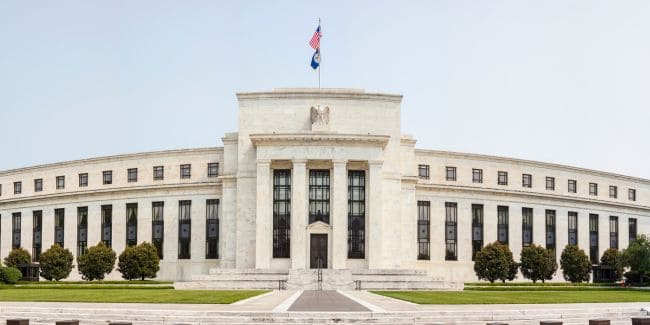
Market Resilience 2023 was tested by high inflation and economic slowdown, as the U.S. economy confronted its toughest challenges in decades. Despite persistent inflation and multiple interest rate hikes by the Federal Reserve to combat it, fears of a recession loomed. However, the U.S. stock market showcased unexpected resilience. The S&P 500 not only avoided a prolonged decline but also reached a record high by the end of the year. This resilience was bolstered by strong corporate earnings, particularly in the tech sector, robust consumer spending, and increasing optimism that the Fed might achieve a “soft landing” without triggering a severe recession.
In an economic environment marked by the highest inflation rates in 40 years and a noticeable slowdown, resilience has been the keyword for many sectors. While this landscape may seem unforgiving, several industries and companies have shown the ability to adapt, innovate, and thrive. This resilience is particularly striking in the technology sector, where a handful of tech giants have outperformed the market and posted significant gains.
The S&P 500, one of the most widely followed equity indices globally, is up 8.9% so far in 2023, or 9.7% when including dividends. However, this increase is only evenly spread across some companies in the index. Instead, it’s concentrated among a few technology behemoths that have shown an uncanny ability to prosper amid economic challenges.

The “big” tech companies – Apple, Microsoft, Alphabet, Amazon, and Nvidia – have contributed significantly to the S&P 500’s gains. Apple, bolstered by solid earnings that defied expectations of a consumer slowdown, has seen its share price increase by 36% this year. Microsoft’s shares have grown by 37%, while Alphabet, Google’s parent company, has experienced a 39% surge in its stock price. Amazon’s shares have jumped by 44%. The most impressive performance, however, has come from Nvidia, whose stock price has soared by 159%, fueled by excitement around its investments in artificial intelligence (AI).
Without these five tech giants, the S&P 500’s growth would be a modest 1.5%. If we exclude the contributions from Meta (up 120% in 2023) and Tesla (up 66%), the S&P 500 would be slightly underwater for the year.
A significant factor is the flurry of excitement around “generative AI,” a form of artificial intelligence capable of creating content such as images, text, and music. This technological trend has supercharged shares of Microsoft, Alphabet, and Nvidia, all of which have close ties to this cutting-edge technology.
Furthermore, Apple and Amazon have both reported strong earnings, defying earlier predictions of a consumer slowdown. These solid earnings reports have helped to fuel their stock price growth. Additionally, tech-centric “growth” companies typically benefit when the market anticipates a shift away from rate hikes, and these companies have indeed caught this tailwind.
Despite the broader economic challenges, the healthcare sector has proven resilient in 2023. This resilience can be attributed to the ongoing demand for healthcare services, which has remained strong due to the continued impacts of the COVID-19 pandemic and an aging global population. The rapid advancements in medical technology, particularly in areas such as telemedicine, digital health, and AI-driven diagnostics, have also played a crucial role in driving growth. While the broader economy has grappled with inflation and economic slowdown, pharmaceutical companies, biotech firms, and healthcare providers have seen steady growth. This can be attributed to their essential nature and the continual need for medical services and products.
The consumer goods and services sector has also shown resilience in economic headwinds. Despite an economic slowdown, consumers have continued spending on non-essential goods and services, typically the first to be cut back during tough economic times. Factors such as government relief checks and the gradual reopening of the economy have provided consumers with the means and confidence to continue spending. The resilience of this sector points to the adaptability of consumers and businesses alike in navigating economic challenges.

The Federal Reserve Building, Washington DC, USA – The Epicenter of U.S. Monetary Policy Decisions.
Central bank policies have played a crucial role in supporting the market’s resilience. Central banks worldwide have implemented various measures to support their economies, including lowering interest rates, purchasing assets, and providing liquidity to the financial system. These measures have helped to stabilize the financial markets and provide a favorable environment for investment.
In the U.S., the Federal Reserve has played a vital role in supporting the economy through its monetary policy decisions. Despite the high inflation rates, the Fed has maintained its accommodative stance, keeping interest rates low to support economic growth. This has helped boost investor confidence and support the market’s resilience.
Fiscal policy has also been key in supporting the market’s resilience. Governments worldwide have implemented fiscal assistance measures to support their economies, including direct payments to individuals, support for businesses, and increased spending on infrastructure and other public services.
These measures have helped to inject liquidity into the economy, support consumer spending, and provide a lifeline to businesses affected by the economic slowdown. This has helped mitigate the impact of the economic downturn and support the market’s resilience.
Despite the economic challenges, the fundamentals of the market remain strong. Corporate earnings have been robust, with many companies reporting better-than-expected results. This has helped to support stock prices and boost investor confidence.
Moreover, the global economy shows signs of recovery, with many countries reporting favorable growth rates. This has helped to boost demand for goods and services and support the resilience of the market.
Investor sentiment, which refers to the collective attitude of investors towards the market, plays a pivotal role in the market’s resilience, especially in the face of economic challenges like those we’ve seen in 2023. This sentiment, often driven by economic indicators and market performance, can significantly influence market trends.
A study by Larry Swedroe, as reported in The Evidence-Based Investor, delves into the impact of investor sentiment on market performance. The study found that high investor sentiment often leads to overconfidence and excessive trading. This overconfidence can cause investors to make decisions based on market “noise” and emotions rather than solid financial analysis, leading to subpar investment performance.

High investor sentiment can often lead to overconfidence and excessive trading.
However, the market has a way of self-correcting. Despite short-term mispricing due to overconfidence, the market eventually adjusts when the proper financial fundamentals come to light. This makes investor sentiment a contrarian predictor of stock market returns, with high sentiment predicting low future returns and vice versa.
The study also found that investor sentiment significantly influences international market volatility and return predictability. This effect is particularly pronounced for hard-to-arbitrage and hard-to-value stocks, which exhibit high “sentiment beta.”
These findings underscore the importance of investor sentiment in shaping market trends and resilience. They highlight the need for investors to stay grounded in solid financial analysis, especially during economic uncertainty. As we navigate through 2023 understanding and managing investor sentiment will remain critical in maintaining market resilience.
In conclusion, the market’s resilience amid inflation and economic slowdown is a testament to its inherent strength and adaptability. Despite the challenges, the market has demonstrated its ability to adapt and thrive, supported by solid market fundamentals, supportive central bank and fiscal policies, and positive investor sentiment. As we navigate through the remainder of 2023, it will be interesting to see how these factors shape the market’s resilience.
However, investors must remember that investing is a long-term game. Although short-term market fluctuations are important to monitor, investors should strive to achieve their long-term financial objectives.
It’s also essential to assess liquidity needs regularly, ensuring sufficient cash or liquid assets to meet any short-term financial obligations.
Maintaining a balanced and diversified portfolio, staying focused on long-term investment goals, and making informed decisions will be the cornerstone of successful investing in these challenging times. The market’s adaptability and inherent strength, coupled with strategic investing, can help investors navigate through the remainder of 2023 and beyond. This approach will allow investors to leverage the market’s resilience and continue toward financial growth.
For an efficient way to leverage this approach, try Vyzer, a cutting-edge digital wealth management platform. It provides a streamlined solution to tracking both traditional and alternative investments, helping to maintain a balanced portfolio. With Vyzer, you’re not just managing your investments, you’re mastering them for long-term financial success. Embark on your journey to financial growth – open your free Vyzer account today.